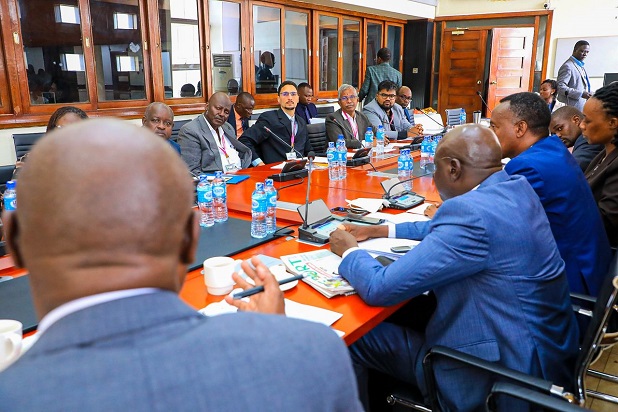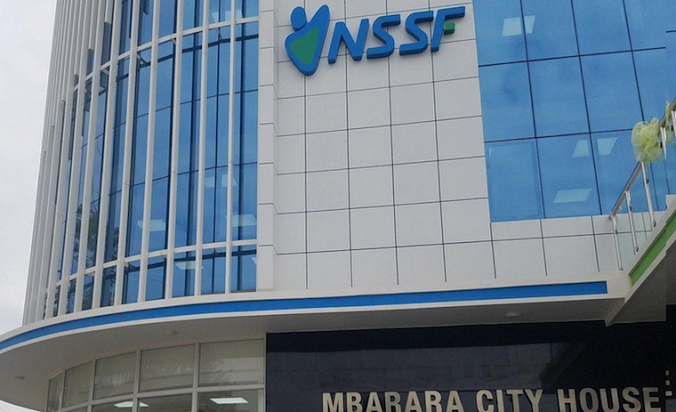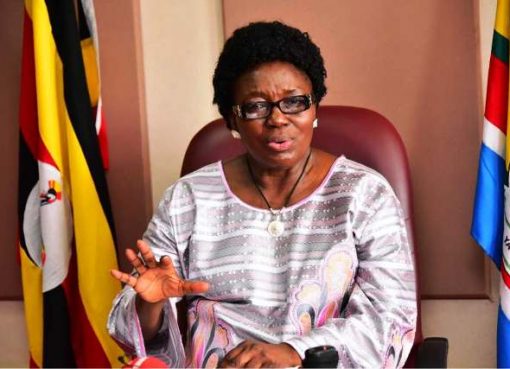Members of Cassava National Platform Uganda appearing before Parliament’s Finance Committee
The Cassava National Platform Uganda has asked Parliament to consider the inclusion of cassava among the cereals and grains with zero tax rate in order to boost production and Uganda’s exports.
The appeal was made by Ken Wanda, Chairperson, Cassava National Platform Uganda while appearing before Parliament’s Finance Committee to provide their views on the Value Added Tax Amendment Bill 2025.
“… if you put VAT on cassava, then it becomes uncompetitive. So, we lose that huge market, which is waiting. And that translates into the smallholders who are growing cassava and investing a lot into it not getting the market,” said Wanda.
He further added that the zero rate VAT would encourage formalisation of businesses involved in the cassava value chain noting, “Now, we also noticed a lot of people process cassava. Many of them are informal and as a committee, we really want to contribute to tax revenues. That means we have to formalise. Now, the moment you formalise, then it’s very easy. You face that hindrance, whereas the others that are not formalised are left to trade. So, there’s a lot of unfairness there. And actually, we see government even losing revenue because you can imagine lots of investments that are getting into.”
Wanda further defended the need for the zero rating on cassava arguing that it will help Uganda’s cassava to be competitive in both the East African Community market and Commonwealth Market for East and South Africa (COMESA).
“We now face stiff competition from cheaper starch imports. For instance, Thailand and Egypt are producing starch using grains. Egypt uses grains imported into the region. Verification requires that the cassava that is processed is competitive. Therefore, if VAT is put on cassava, as the case is now, cassava flour, it makes it uncompetitive, leading to loss of markets and incomes to processors and farmers,” explained Wanda.
Rebecca Namugwanya, member of the Cassava National Platform detailed the ordeal she faces from the competition from substitutes like wheat flour which is cheaper than Cassava.
“We had an order from one of the leading bakers in this country, and they wanted one tonne of cassava flour a day. And then the war ended in Ukraine. And then they said, why should I buy your cassava flour? Because it is very expensive. When you look at the price of wheat, it is industrial wheat is about Shs2,500. And for me to bring my cassava flour on the market, I have to sell it Shs5,000 a kilo. So, they are asking me, yes, it is tasty, but why should I buy your cassava flour? It is very expensive,” Namugwanya said.
She went on to detail the technology used in drying cassava, which she says is high power consuming as high-quality cassava flour isn’t dried on the sun like the case is done in local homes.
“We use electrical dryers. We don’t use this cassava that is dried on the roads. If you are producing high-quality cassava flour, you have to make sure that you dry – you use electrical dryers, or we need high-technology solar drying systems that can keep the heat coming up. And all those are expensive, but also the tax has to go up. But also, we are asking government, 10% levy introduction in all wheat flour. You know, in Uganda, we import quite a lot of wheat. We can have wheat blended with high-quality cassava flour for all Ugandans, and that is going to keep them healthy,” argued Namugwanya.
Amos Kankunda, Chairperson Finance Committee promised to follow up with Uganda Revenue Authority (URA) to investigate corruption tendencies towards the issuance of COMESA certificate during the importation of flour as alleged by the Cassava Group.





